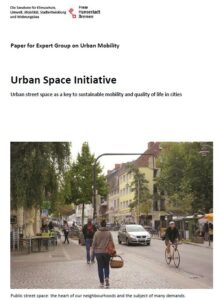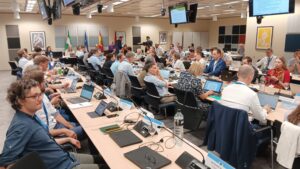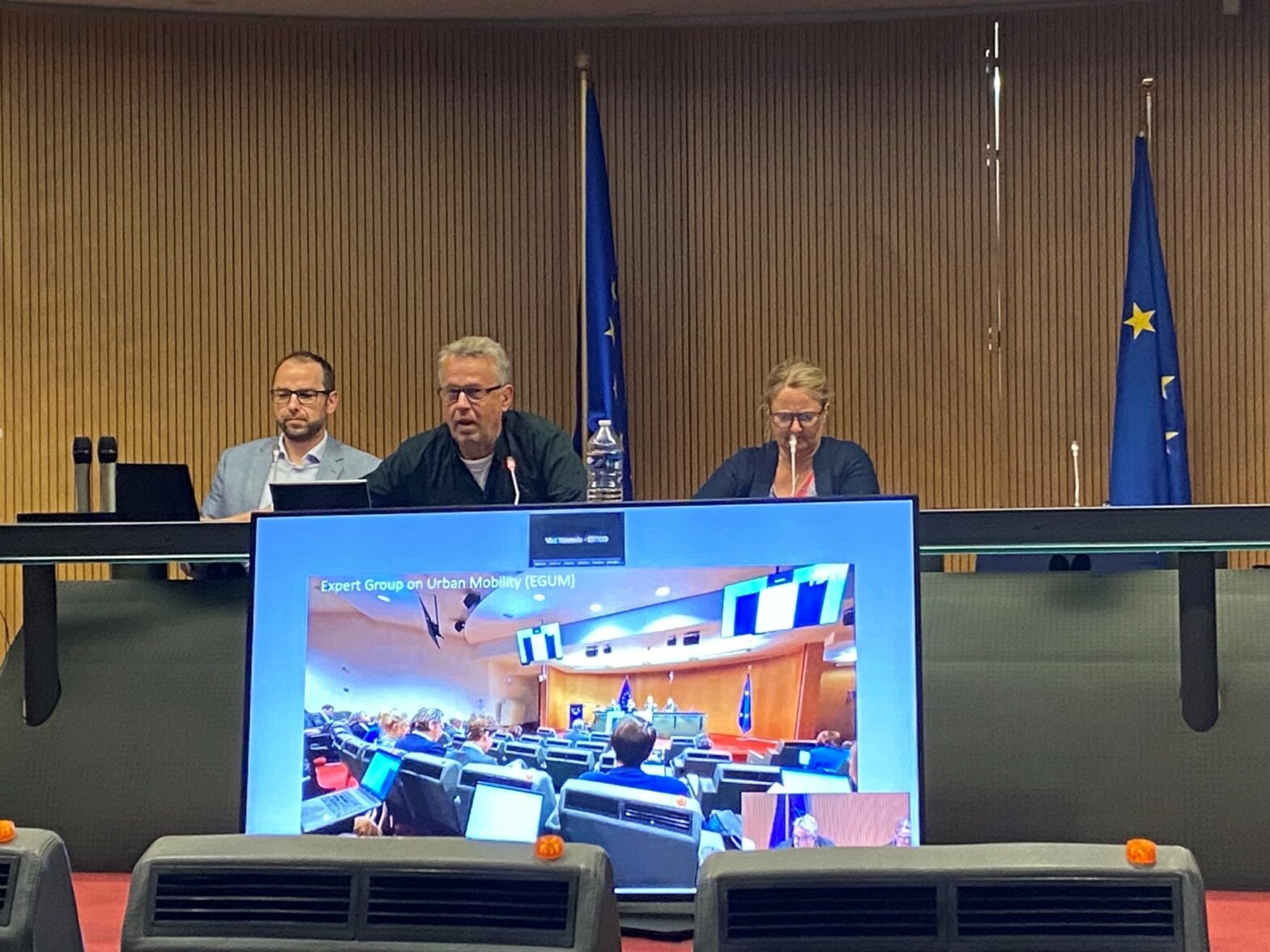In November 2022, the ’new‘ Expert group on Urban Mobility‘ (EGUM) linked to the European Commission started its work. Being composed not only by the 27 member states, but also 25 thematically relevant organizations (e.g. UITP, ACEA, IRU, ECF, T&E, ALICE, …) and 25 selected cities. As representative of Bremen, I addressed in the kick-off meeting straightaway the topic of limited street space with a paper „Urban Space Initiative“ and the plenary decided to have this as a specific working group topic.

The topic was brought together with the (already set) theme of ‚urban mobility of the future‘ – coordinated by ERTICO – to “Future of urban mobility and inclusive and sustainable urban space”.
Together (Vlad Vorotovic from ERTICO and I), we had the honour to chair the group ad started the group work with some interactive sessions – to find the common understanding of the challenges and areas/strategies of potential solutions. No wonder, that we gathered also different strategic approaches.

At the end, we defined 17 modules of solutions – all with some synergy and also process requirements. Street space is subject of intense discussions in cities – (car) parking is often very emotionally charged – and every change of organizing street space is subject of sensitive political debates. Limited street space if facing severe challenges: the ever-growing size of cars is causing problems as fewer cars can be parked on the given street space. Only be increasing vehicle sizes, the European car fleet -end-to-end- consumes about 50,000 kilometres more space! E-charging hubs and delivery zones for the growing number of urban deliveries are new challenges and as well the need for climate adaptation in urban neighbourhoods. New technological options of kerbside management, of demand- and vehicle size based parking fees together with some stricter enforcement show paths to better organise street space – leading to more efficiency of the entire urban mobility sector. Promoting off-street parking will have no business model without on-street pay-parking. As good examples show, car sharing has a huge potential in urban areas to replace car ownership – thus the demand for parking space. All these modules presented on the report together present a way to make our cities efficient, inclusive, resilient and liveable. Still, it will not be an easy process – but the report will be a helpful tool.
It is worth to mention that readers will find some diverging statements of ACEA – the Association of European car makers. I appreciate the open conversation that we had at the end and presenting different positions – taking this as a clear sign that we need to further exchange on the topic and hopefully also find more common ground.
On 30 January 2025, the EGUM plenary adopted the two deliverables of the Working group:
EGUM D6-1-limited urban EGUM D6-1-limited urban space
EGUM WG6-DEL6-2_Inclusive and sustainable future of urban mobility in Europe
Both deliverables are for download in the versions being presented to and adopted by the EGUM plenary on 30 January 2025.
